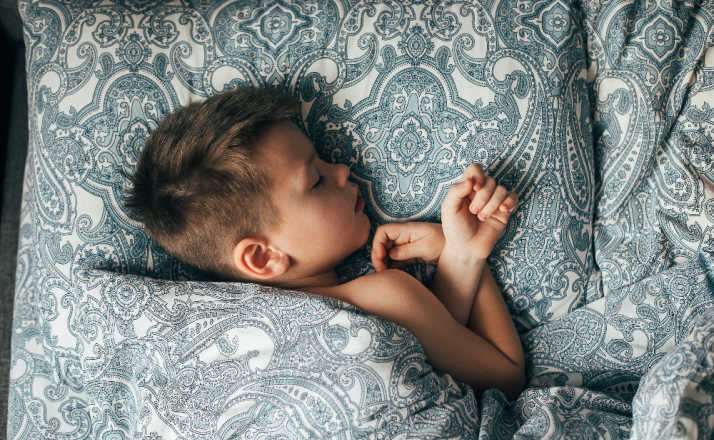Sleep is a rare commodity and many of us live in a perpetual state of exhaustion. Falling asleep and staying asleep isn’t nearly as easy as it sounds.
So it’s no surprise that many of us turn to sleep aids, such as melatonin, to try to get our forty winks.
However, this increased reliance on melatonin is having dangerous, and sometimes deadly, consequences for our children.
New research published by the CDC shows an alarming increase in melatonin overdoses in children – up a whopping 530% over the past decade.
The largest spike in poisonings – a 38% increase – occurred between 2019 and 2020, yet another troubling by-product of Covid-19.
According to the study, more than 260,000 cases of melatonin overdoses in children and teens were reported to US poison control centers between 2012 and 2021.
Over 4K of these resulted in hospitalizations, with 287 kids ending up in intensive care. 5 children required mechanical ventilation.
Sadly, two children (an infant and a toddler) died at home following melatonin poisoning.
In 2021 alone, US poison control centers fielded more than 52,000 calls about pediatric melatonin ingestion.
The majority of these were young children, under the age of 5, who got their hands on bottles of improperly stored melatonin.
However, not all of the ingestions were accidental.
2021 also saw a huge increase in teenagers hospitalized for intentional ingestions. Which, thanks to the stress-inducing hellscape of pandemic living, unfortunately, isn’t all that surprising.
So what is melatonin?
Melatonin is a hormone naturally produced by the brain. It helps to regulate our SLEEP CYCLES.
Melatonin supplements mimic the hormone and come in easy-to-consume forms, like liquids, gummies, pills, and chewable tablets.
They even come in gummy vitamins for children and are marketed to parents as a safe sleep aid for children.
According to the CDC:
“Melatonin is regulated by the Food and Drug Administration as a dietary supplement and is a widely available over-the-counter sleep aid for adults and children.”
And public demand for melatonin has snowballed.

According to the study’s lead researcher, Dr. Karima Lelak, a pediatric emergency physician at the Children’s Hospital of Michigan, sales in the United States shot up by approximately 150% between 2016 and 2020.
Lelak writes:
“Increased sales, availability, and widespread use have likely resulted in increased access and exposure risk among children in the home.”
She cites the pandemic for exacerbating the problem as children spent more time at home due to lockdowns, increasing their opportunities to access melatonin.
Lelak also believes that more families turned to melatonin in order to combat the stress, anxiety, and sleeplessness caused by the pandemic.
She tells ABC News:
“Children were upset about being home, teenagers were closed off from friends. And on top of all that everyone’s looking at screens for hours and hours a day.”
Even though the pandemic appears to be winding down and people are slowly returning to normal, melatonin pediatric poisonings are still a huge concern.
Lelak believes that further research into the causes of increased melatonin ingestion among children is necessary.
She also calls for public health initiatives to raise awareness about the potentially deadly consequences of melatonin exposure. This includes safer packaging.
She writes in the report:
“Child-resistant packaging for this supplement should be considered, and health care providers should warn parents about potential toxic consequences of melatonin exposure.”
In an interview with Buzzfeed News, she stresses the importance of safely storing melatonin out of children’s grasps:
“Parents should really see melatonin just as any other medication that has the potential to do harm to kids, and it can be even more dangerous because it can look like candy.
If a parent takes their melatonin after reading this paper and puts it in their medicine cabinet, I am humbled because I think that’s really a big take-home point: safe storage.”
While there haven’t been a lot of studies on melatonin use in children, there are CONCERNS that it could affect the development of the reproductive system.
Short-term side effects can also include:
- headaches
- vivid dreams
- nausea
- diarrhea
- drowsiness
In the case of melatonin poisoning, the gastrointestinal, cardiovascular, or central nervous systems are affected.
Symptoms include:
- nausea
- drowsiness
- abdominal pain
- vomiting
If you suspect a melatonin overdose you should immediately call poison control at 1-800-222-1222.
Melatonin can be a safe and effective tool, particularly for sleep-deprived parents. However, as with all medicine (even if it’s not labeled as such), it should be kept out of the reach of children.











